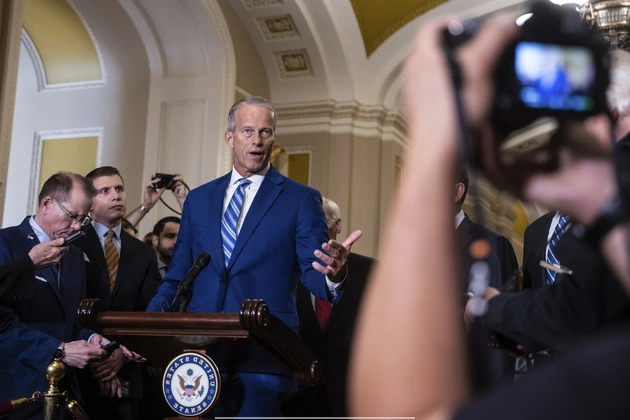
Senate Republicans and Mounting Debt Warnings
Senate Republicans face mounting warnings from economists regarding their signature legislation’s potential to significantly increase the deficit. Despite these warnings, concerns about the fiscal impact seem to be low on their list of priorities.
White House Estimates vs. CBO Reports
The GOP relies heavily on White House estimates that predict substantial economic growth, contrasting with most other economic models. The nonpartisan Congressional Budget Office (CBO) cautioned that the House-passed bill could add around $2.8 trillion to the deficit over a decade, sparking debates among lawmakers.
Impact of GOP’s Tax Cuts
While the GOP’s tax cuts may spur some economic growth, experts suggest that the economic impact might not match that of previous tax cuts. With federal debt nearing $37 trillion, concerns arise about the rising costs of servicing higher interest payments outweighing any revenue gains from increased growth.
Economic and Fiscal Challenges
Economists highlight the challenges posed by the GOP’s megabill, projecting increased interest rates and borrowing costs. The bill’s potential to hike interest rates, by an estimated $440 billion over a decade, while only driving modest economic growth, raises questions about its long-term impact.
Differing Economic Projections
Various economic models offer contrasting views on the GOP’s megabill. While the White House projects substantial revenue generation and economic growth, other analyses paint a less optimistic picture, predicting deficits and limited growth over the next decade.
Political Response and Calls for Revision
Democratic lawmakers warn of potential negative repercussions on the economy, citing past experiences with tax legislation. Calls for revisiting the bill and making necessary adjustments to avoid adverse economic effects echo through the political arena.
Conclusion
The debate surrounding the GOP’s megabill reflects the complex interplay between economic policies, fiscal responsibilities, and political considerations. As lawmakers navigate these challenges, the need for informed decision-making and bipartisan cooperation remains paramount.











